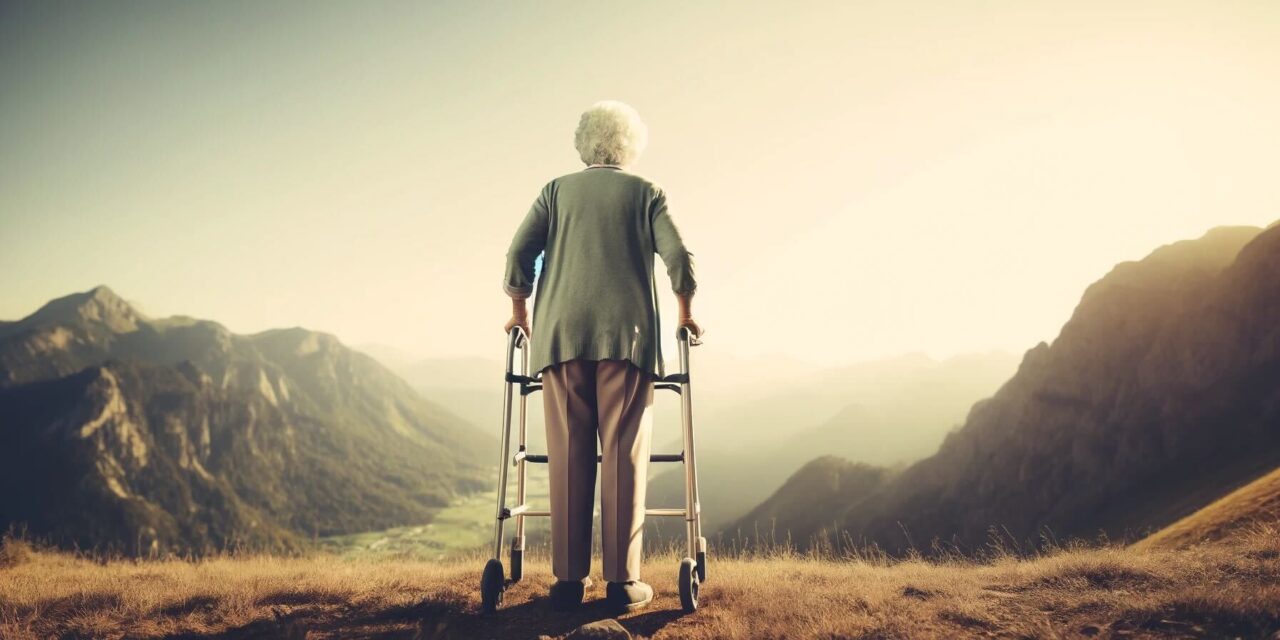Most of us are devastated by potentially tragic events that affect our lives and we may, rightfully, need time to recuperate and deal with our potential losses. How we let adversity affect our lives and how we are able to navigate ourselves back on course can, however, affect our physical and mental wellbeing and therefore also our lifespans.
Health Psychology and Resilience
The human mind is capable of many wonderful things and no two individuals are entirely alike. Most people are however united by certain factors that affect our psychological, behavioral, and social relationship to health and well-being. Health psychology aims to explore the connection between mind and body and understand how the interplay between human behavior and health outcomes (Kaplan, 2009). Within health psychology there are a multitude of different disciplines and activities, most of them also relatively new since health psychology itself is not much older than 50 years (Quinn et al., 2020). There are many theories within health psychology that try to explain why humans act in certain ways in certain situations and while most of them simplify human behavior to overarching common denominators they are generally useful for understanding the mechanisms at work (Rejeski & Fanning, 2019).
As mentioned previously, we all face adversity in our lives, and one of the traits that allows us to cope with our experiences is resilience (Suslovic & Lett, 2023). Resilience can be defined as a person’s ability to respond to and overcome stressful situations and traumatic life events in healthy and positive ways (Kte’pi, 2020). Further aspects can naturally be added, such as the frequency of how often these life events occur and their intensity. By having this outlook and functional coping mechanism, a person with resilience avoids developing a significant stress response (Zapater- Fajarí et al., 2021).
The stress response is a biological response in people to stress, mostly by the hypothalamic-pituitary-adrenal (HPA) axis and the sympathetic nervous system (Smith, 2006). These systems run in high gear in times of stress and release certain hormones such as epinephrine and cortisol, which help prepare the body for action. The acute stress reaction is a natural and adaptive response and normally fades away quickly, but in periods of prolonged stress this reaction can become chronic and take a toll on both the physical and mental health of the individual. This prolonged response can cause structural changes in the body and result in a person having a higher risk of developing cardiovascular disease, cognitive disorders, and other chronic conditions that affect their health and lifespan (Yaribeygi et al., 2017).
Herein is the crux of having resilience since it provides the possibility for a person to modulate the stress response and return their body to a state of equilibrium (Averill et al., 2018). People with high resilience are therefore noted to have a more flexible stress response, being able to recover faster and also have overall lower levels of stress hormones (Madison, 2021; Sun et al., 2014). This ability to “bounce back” from adversity therefore protects people from the negative effects of stress and also contributes to a potential longer lifespan.
Resilience and Longevity
It has been observed in Chinese nonagenarians that people with better resilience are significantly more likely to become centenarians (Zeng & Shen, 2010). The researchers drew the conclusion that having resilience is especially important for longevity at advanced ages but that being resilient plays a role throughout a person’s life. When the ability to bounce back and recover declines it also results in ageing and an increased vulnerability to death (Ukraintseva et al., 2021; Ukraintseva et al., 2016). Resilience was shown to be a central factor among typical centenarians and that centenarians who had resilience were often healthy (Merino et al., 2023). A similar finding was made by Martin et al. (2010) which indicated that resilience is connected to health in centenarians. It also appears that resilience in the oldest old (over 85) is higher than that in younger people (Nygren et al., 2005).
In my own research on supercentenarians, I have found that resilience and hardiness (a similar concept that focuses more on how people respond to stressors rather than “only” bouncing back) is prevalent among supercentenarians. Most supercentenarians will outlive most people in their surroundings, including some of their own children. To some people the grief from situations like these could cause major depression and result in a quick decline, but supercentenarians are often able to continue living and enjoying good health. Often their abilities are aided by having a strong supportive social network, which is also of importance in resilience since we humans are a social species. It often fascinates me when I read through articles about supercentenarians and to see how they have managed to overcome adversity at all levels, be it the loss of loved ones, fires, or being victims of war and all its horrors.
Resilience and You
Now you might be wishing that you too had the resilience of the exceptionally old and being able to conquer all aspects of life. Thing is, you probably do (at least for the most part). Resilience is also a dynamic process and something that grows and adapts as you go through life and is affected by your own outlook on life and your surroundings (Chmitorz et al., 2018). Keeping yourself alert and working on your own psychological health can help you develop the right mindset for achieving longevity.
References
Averill, L. A., Averill, C. L., Kelmendi, B., Abdallah, C. G., & Southwick, S. M. (2018). Stress Response Modulation Underlying the Psychobiology of Resilience. Current psychiatry reports, 20(4), 27. https://doi.org/10.1007/s11920-018-0887-x
Chmitorz, A., Kunzler, A., Helmreich, I., Tüscher, O., Kalisch, R., Kubiak, T., Wessa, M., & Lieb, K. (2018). Intervention studies to foster resilience – A systematic review and proposal for a resilience framework in future intervention studies. Clinical psychology review, 59, 78–100. https://doi.org/10.1016/j.cpr.2017.11.002
Kaplan R. M. (2009). Health psychology: where are we and where do we go from here? Mens sana monographs, 7(1), 3–9. https://doi.org/10.4103/0973-1229.43584
Kte’pi B. (2020). Resilience (Psychology). Salem press encyclopedia. Hackensack, NJ: Salem Press.
Madison A. A. (2021). Boosting stress resilience using flexibility as a framework to reduce depression risk. Brain, behavior, & immunity – health, 18, 100357. https://doi.org/10.1016/j.bbih.2021.100357
Martin, P., MacDonald, M., Margrett, J., & Poon, L. W. (2010). Resilience and longevity: expert survivorship of centenarians. In P. S. Fry & C. L. M. Keyes (Eds.), New Frontiers in Resilient Aging: Life-Strengths and Well-Being in Late Life (pp. 213–238). chapter, Cambridge: Cambridge University Press.
Merino, M. A., Sánchez-Ortega, M., Elvira-Flores, E., & Mateo-Rodríguez, I. (2023). Centenary Personality: Are There Psychological Resources that Distinguish Centenarians? Journal of Happiness Studies, 24, 2723–2745. https://doi.org/10.1007/s10902-023-00700-z
Nygren, B., Aléx, L., Jonsén, E., Gustafson, Y., Norberg, A., & Lundman, B. (2005). Resilience, sense of coherence, purpose in life and self-transcendence in relation to perceived physical and mental health among the oldest old. Aging & mental health, 9(4), 354–362. https://doi.org/10.1080/1360500114415
Quinn, F., Chater, A., & Morrison, V. (2020). An oral history of health psychology in the UK. British journal of health psychology, 25(3), 502–518. https://doi.org/10.1111/bjhp.12418
Rejeski, W. J., & Fanning, J. (2019). Models and theories of health behavior and clinical interventions in aging: a contemporary, integrative approach. Clinical interventions in aging, 14, 1007–1019. https://doi.org/10.2147/CIA.S206974
Smith, S. M., & Vale, W. W. (2006). The role of the hypothalamic-pituitary-adrenal axis in neuroendocrine responses to stress. Dialogues in clinical neuroscience, 8(4), 383–395. https://doi.org/10.31887/DCNS.2006.8.4/ssmith
Sun, X., Dai, X., Yang, T., Song, H., Yang, J., Bai, J., & Zhang, L. (2014). Effects of mental resilience on neuroendocrine hormones level changes induced by sleep deprivation in servicemen. Endocrine, 47(3), 884–888. https://doi.org/10.1007/s12020-014-0228-8
Suslovic, B., & Lett, E. (2024). Resilience is an Adverse Event: A Critical Discussion of Resilience Theory in Health Services Research and Public Health. Community health equity research & policy, 44(3), 339–343. https://doi.org/10.1177/2752535X231159721
Ukraintseva, S., Arbeev, K., Duan, M., Akushevich, I., Kulminski, A., Stallard, E., & Yashin, A. (2021). Decline in biological resilience as key manifestation of aging: Potential mechanisms and role in health and longevity. Mechanisms of ageing and development, 194, 111418. https://doi.org/10.1016/j.mad.2020.111418
Ukraintseva, S., Yashin, A. I., & Arbeev, K. G. (2016). Resilience Versus Robustness in Aging. The journals of gerontology. Series A, Biological sciences and medical sciences, 71(11), 1533–1534. https://doi.org/10.1093/gerona/glw083
Yaribeygi, H., Panahi, Y., Sahraei, H., Johnston, T. P., & Sahebkar, A. (2017). The impact of stress on body function: A review. EXCLI journal, 16, 1057–1072. https://doi.org/10.17179/excli2017-480
Zapater-Fajarí, M., Crespo-Sanmiguel, I., Pulopulos, M. M., Hidalgo, V., & Salvador, A. (2021). Resilience and Psychobiological Response to Stress in Older People: The Mediating Role of Coping Strategies. Frontiers in aging neuroscience, 13, 632141. https://doi.org/10.3389/fnagi.2021.632141
Zeng, Y., & Shen, K. (2010). Resilience significantly contributes to exceptional longevity. Current gerontology and geriatrics research, 2010, 525693. https://doi.org/10.1155/2010/525693
Featured image created with assistance of OpenAI technology.





